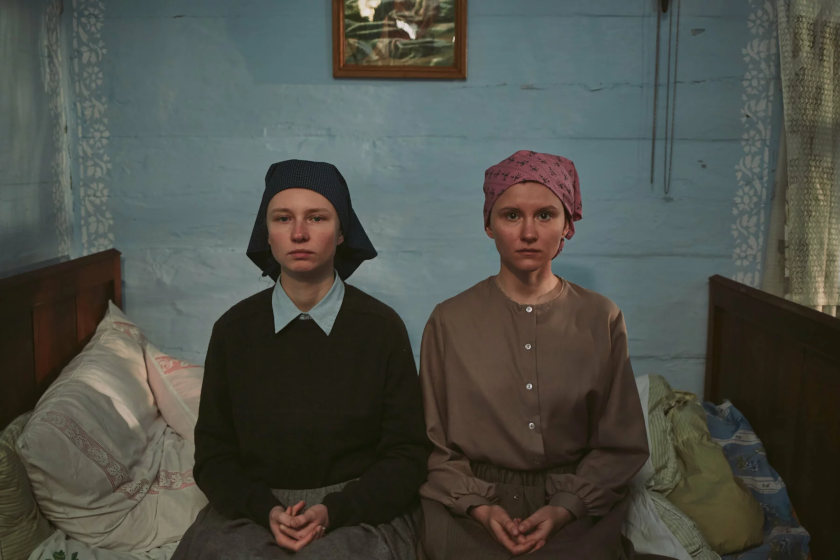Vassilis Kroustallis reviews the Polish film 'Day and Night', which had its world premiere at Riga International Film Festival.
'Day and Night' (Dzien i noc) by Katarzyna Machalek and Lukasz Machowski is a calculated, overall simplicity of a film. Researched and shot in Eastern Poland (Katarzyna Machalek comes from the forest region of Roztocze), and traveling between the post-WWII period and today, it is a carefully crafted nominally hybrid of a film (fiction and documentary). But the way Machalek and Machowski edit seamlessly its various pieces make the characters look like a natural procession of the first one -sometimes for a good reason.
The female bonding, a loose but still visible thread that runs throughout the film, starts with the opening scene, where a female choir in traditional costumes starts singing about the perils of being non-married while traveling along the Roztocze forest. We soon meet the witch-like Nawoja (an imposing Sandra Korzeniak) somehow in trance, as if trying to exorcise her little or bigger demons within.
But 'Day and Night' is a film about expositions, not about imposed reasoning connections. The first part (Day) brings forward the longing, the after-war joy, and the aspirations of women who sing around the table -some of them are envious of the 'lucky ones' who went to Krakow to study (instead of milking cows for a living); while in the documentary part, the elderly women take their turn in reminiscing war, men and life.
Rather than slow-burn, 'Day and Night' is mostly slow-observing. With cinematography (by Lukasz Machowski again) that stays close to its natural environment and a spectacular array of costumes, it relies on the two main female characters, Bielakowa (Aleksandra Galczynska) and Jania (Katarzyna Janiszewska) to carry the loose plot of women needing to take the lead when fathers are away. The second part ('Night') brings more to the surface -with a tremendously shot scene of fire arson- what was there all the time: that the male reasoning produces non-livable monsters.
Both Jania and Bielakowa will get closer due to that, while the film's careful observance of the witchcraft phenomenon is neither celebrated nor exonerated, simply stated. The easy identification of women with the non-rational element is here played upon, and there is genuine care for this ensemble of characters (especially in the documentary part, where the last remaining woman alive -she's now past her 90 years) meditates and sings lying in her bed.
'Day and Night' has at times difficulties in moving from its meticulously researched attitude to improvisation and the unexpected, and that makes the film's potential suffer as a result. At other times, the indications look too obvious. Yet, it is strongly acted (that's what an ensemble casting should be like) and tailored for those who see beyond heroes and villains. A cultural landscape-themed film for people who don't take landscapes seriously enough.
Vassiis Kroustallis
'Day and Night' world premiered at the 2022 Riga International Film Festival (13-23 October 2022)

